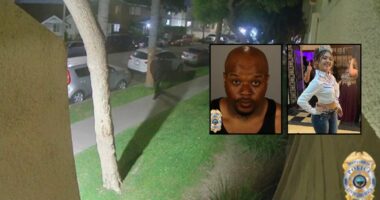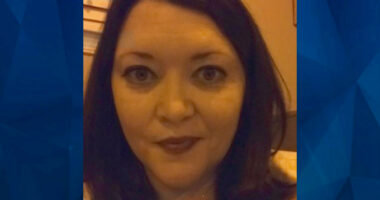
A month ago Palm Coast City Council members Ed Danko and Theresa Pontieri voted to remove from the ballot the proposed referendum that would end voters’ say on city borrowing beyond a certain limit. The two council members had problems with the proposal’s vague and misleading language: it does not tell voters that they’d be losing a right they’ve had since the city’s founding 25 years ago. It merely tells them they’d be removing unspecified limits on the city’s contracting authority.
The motion failed on a 2-2 vote. The fifth seat was empty since Cathy Heighter’s resignation weeks before. On Tuesday, the council appointed Charles Gambaro to the seat. Nearly five hours into the meeting, Gambaro made a motion to remove the measure from the ballot. Danko seconded. There was no vote. City Attorney Marcus Duffy and Council member Theresa Pontieri intervened before there could be one.
That left the council in a startling position of defending a proposed referendum a majority of the council members now oppose. The two council members clinging to its validity will be off the council after November 5. The city also faces a lawsuit seeking to nullify the ballot measure for the same reason the three council members have opposed it: it’s misleading.
Tuesday’s late-night motion–the first substantial motion by Gambaro–and the discussion that followed was instructive both about the extent to which the proposed referendum has lost credibility and the way it is fracturing the council and putting its attorney, Marcus Duffy, in an undesirable limelight.
That the proposal is damaged goods is beyond question. But the longer the battle roils, the more difficult it will be for the next council to repair the damage. (Three council members will be replaced after the Nov. 5 election: Danko, Nick Klufas and Mayor David Alfin. Regardless who they may be, the candidates seeking to replace them have also largely denounced the referendum in its present form, including mayoral candidates Cornelia Manfre and Mike Norris.)
As he prepared to make his motion Tuesday, Gambaro spoke of meeting with “members of the business community, even my neighbors, others that really vehemently expressed some concerns with regard to the charter amendment,” he said. What he did not say is that he’d met with members of the Chamber of Commerce, who have also gone from champions of the referendum to opponents.
“I absolutely see the intent of what the charter amendment is trying to do. But I’m just deeply concerned about it, and I think it’s also important that our citizens understand clearly what they’re voting for,” Gambaro said, using language almost as sharp as Danko’s over the last few weeks. (Danko had led the charge for his appointment to the council.) “I think this charter amendment requires a reset, and as such, I move that this council nullify the charter amendment.” He proposed passing the proposed referendum to the next council for a rewrite. That had been the intent of the Danko-Pontieri motion.
“I would advise you not to take this up, because it this is at the point of no return,” Duffy said. “As Councilman Gambaro has said, ballots have gone out. So the election process has started. So it would be my advice that this cannot be nullified. In case law research, the only way that this can be changed is by a judicial decree, is where a judge would intervene and the judge would find it not valid.”
That is not what Supervisor of Elections Kaiti Lenhart said, Danko noted. The council could also vote to have it nullified–that is, not counted, even though it’s on the ballot. (The Flagler County Commission did exactly that with a 2010 ballot referendum the Chamber of Commerce at the time was pushing. It remained on the ballot, but it was not counted. No judge’s decision was necessary.)
“Just because it’s on the ballot, the language could be removed, the vote could not count. She’s already confirmed that in the media to the Observer, Flagler live, and she has no problem doing that,” Danko said. By “removed,” Danko did not mean that it would be removed from future ballots. It would still be on the ballot. But the results would not be tallied, and voters in voting booths would be informed of the council’s decision to have nullified the vote.
Lenhart is named as a party in the lawsuit seeking to have the referendum nullified. In the answer to the lawsuit on her behalf, filed on Oct. 1, the pleading states that “tabulators can be programmed to ignore the referendum.” (Lenhart is not the person who certifies votes; the Flagler County Canvassing Board does. In that regard, the lawsuit’s complaint will have to be amended to reflect the fact. Otherwise it’s inaccurately targeted and risks dismissal on a technicality.)
The Canvassing Board is meeting on Oct. 3 to test voting machines. At that meeting, Assistant County Attorney Sean Moylan–who filed the answer on Lenhart’s behalf–will be asking the Canvassing Board to agree to ask the court to expedite the case, so the supervisor’s office will know how to proceed.
Moylan’s answer to the court does not address the City Council’s authority to nullify the vote. But Duffy said the council does not have that authority. He did not cite case law or any other form of precedent.
“If this city council decides to nullify this vote, then it could be [seen as] we are interfering with the election,” Duffy said, “whereas it is now the hands of the voters. The only other option that I would advise is that a judge can have a judicial decree that can find it not valid. This council cannot nullify the vote.” He said a voter could potentially litigate the issue if the council were to nullify.
What he did not say, but is also one of the options available to the council is that the city can stipulate to the lawsuit’s demand before a judge, in essence conceding in court what the council majority now has said at council meetings: that the language is misleading. It would be the equivalent of a settlement, but with a judge’s order, minus a judge’s requirement to rule on the merits of the challenge.
Duffy’s advice aside, Danko–who’s had little shrift for Duffy–seconded Gambaro’s motion.
Pontieri then called the motion improper on two counts. “The only people that can unwind a Council action that was already taken are those who voted in favor of that action, and it has to be done at the next business meeting,” she said. Second, she said taking a council action after the vote has begun is “clearly voter disenfranchisement.”
“Just because we think that a lot of the voters don’t like this doesn’t make it right to interfere in the election,” Pontieri continued, “because then in the future, when something favorable is on the ballot, the same thing can be done, because the pendulum always swings to the other side. So if we interfere in this election now, a future council can interfere in a more favorable, or what we think is a favorable election the future. And I am certainly not okay with that. So this direction, this action, is not legal.”
At that point Alfin nullified the motion–itself a first at the council.
Gambaro accepted the mayor’s decision, but reiterated: “The voices that came to me from all over the city on this issue was pretty loud,” he said. “They want us to not take a loss, right? And they want us–my next door neighbor, while I’m taking out the trash, everybody was very clear and vocal on this. And so I thought as a new member, I could, but I’m still the new guy learning, and that’s fine. But regardless of what happens, I still think the language needs to be rewritten down the road. I look forward to working with the next council to do that.”
Danko was less accepting, challenging Duddy’s counsel (but not mentioning Pontieri’s). “We could save ourselves the embarrassment of having this go down in flames,” he said. “And more importantly, we could be done with the lawsuit aspect of it.”
There was one final twist: moments later Duffy asked for a “shade” meeting, meaning a closed-door meeting to discuss pending litigation. Florida law grants local governments that authority within strictly defined boundaries and conditions (to discuss litigation, union contracts or specific security measures). For a moment it sounded as if Duffy was calling for a meeting to discuss the lawsuit against the referendum. He wasn’t. The meeting is to discuss the city’s lawsuit against a slew of contractors who built the ill-fated splash pad at Holland Park a few years ago. That suggests that a settlement may have been offered, and the meeting would determine whether to accept the settlement or not. Docket sounding in that case–the last step before trial–is set for Jan. 7. A hearing before Circuit Judge Dawn Nichols is scheduled for Oct. 29.
But neither Duffy nor any of the council members asked to have a discussion or a meeting about the pending lawsuit against the referendum.









